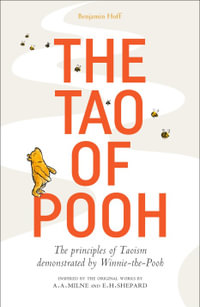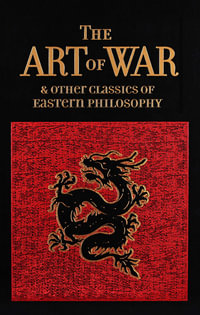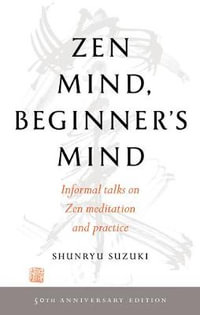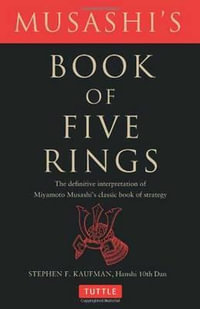
Sagehood
The Contemporary Significance of Neo-Confucian Philosophy
By: Stephen C. Angle
Paperback | 28 June 2012
At a Glance
312 Pages
23.39 x 15.6 x 1.65
Paperback
RRP $100.95
$64.95
36%OFF
or 4 interest-free payments of $16.24 with
orAims to ship in 5 to 10 business days
philosophers leading the current renewal of interest in virtue ethics. The book's significance is two-fold: it argues for a new stage in the development of contemporary Confucian philosophy, and it demonstrates the value to Western philosophers of engaging with the Neo-Confucian tradition.
"Rarely is a work in comparative philosophy itself an original philosophical contribution. But that is the case in this instance in which Angle brings Neo-Confucian philosophy into fruitful conversation with contemporary Western, virtue-ethics based analytic philosophers.The result is a presentation of Neo-Confucianism that advances it beyond any previous Neo-Confucian: Angle is the best in the line so far, at least among those writing or written about in English." - Robert Cummings Neville, The Review of Metaphysics
"This book does an outstanding job of engaging a wide range of sources not only from different areas of philosophy (such as virtue ethics and Chinese philosophy) but also from the disciplines of religious studies and Asian studies. Indeed, one thing that makes this book worth reading is the way it puts new and interesting sources into conversation with one another in order to shed new light on the topics at hand. While this work is certainly recommended for specialists in comparative ethics and Chinese philosophy, it is also a resource for philosophers interested in learning how non-Western philosophy might potentially contribute to work in ethics today." - Eric Cline, Mind
"Throughout the book, Angle makes good use of recent empirical studies. His book is very accessible for readers with a wide variety of backgrounds. Philosophers with no background in Chinese thought will find challenging and interesting discussions of many issues relevant to their own work. Furthermore, I think this book is also quite appropriate to assign to strong undergraduate students. I recommend it highly." - Bryan W. van Norden, Notre Dame Philosophical Reviews
Industry Reviews
PART I: KEYWORDS 1 - Sheng/Sage 1.1 "Sage" in the Confucian Tradition 1.1.1 Historical Survey 1.1.2 Neo-Confucianism 1.1.3 Shengren versus Junzi 1.2 Western Ideals 1.2.1 Greece 1.2.2 Contemporary Saints and Heroes 1.3 Concerns About Sagehood 1.3.1 Is Sagehood Realistic? 1.3.2 Is Sagehood Desirable? 2 - Li/Coherence 2.1 First Steps 2.2 Subjective and Objective 2.2.1 Nature and Subjectivity 2.2.2 Settled Coherence and Objectivity 2.3 Li and Qi 2.4 One and Many 2.5 Normativity and Creativity 3 - De/Virtue 3.1 Virtue as a Bridge Concept 3.2 Early "De" 3.3 Neo-Confucian "De" 3.4 Final Thoughts 4 - He/Harmony 4.1 Early Classical Sources 4.1.1 Complementary Differences 4.1.2 Natural Patterns and Creativity 4.2 The Zhongyong ("Doctrine of the Mean") 4.3 Song Neo-Confucianism 4.4 Wang Yangming: Summary and Initial Engagement 4.4.1 Harmony, Coherence and One Body 4.4.2 A Contemporary Example 4.4.3 Politics
PART II: ETHICS AND PSYCHOLOGY 5 - The Scope of Ethics: Dialogue with Slote and Murdoch 5.1 Balance and Harmony in Slote's Agent-Based Ethics 5.1.1 Caring, Humaneness (Ren), and Empathy 5.1.2 Two Kinds of Balance 5.1.3 The Motivation for Overall Balance 5.1.4 Agent-Basing 5.1.5 Reverence 5.2 Murdoch on the Importance of a Transcendent Good 5.2.1 Unity, Mystery, and Faith 5.2.2 Selflessness 5.3 Conclusion: The Scope of Ethics 6 - Challenging Harmony: Consistency, Conflicts, and the Status Quo 6.1 Nussbaum and Stohr Against "Harmony" 6.2 Imagination 6.3 Maximization 6.4 Residue 6.4.1 Complicating the Picture 6.4.2 Grief versus Regret 6.5 Dimensions of Dilemmas 6.6 Emotional Vanilla? 6.6.1 Myers's Challenge 6.6.2 Neo-Confucians on Anger 6.6.3 Conclusions 7 - Sagely Ease and Ethical Perception 7.1 Wang Yangming on Analects 2:4; the Centrality of "Commitment" 7.1.1 Commitment in Classical Texts 7.1.2 Commitment in Wang Yangming 7.1.3 Deepening Our Commitment 7.2 Connecting "Commitment" to "Unity of Knowledge and Action" 7.3 Cua on commitment to realizing a harmonious world 7.3.1 Active Moral Perception 7.3.2 Creativity Revisited 7.4 A Fuller Picture 7.4.1 Murdoch on M and D 7.4.2 Intrusions of the Self 7.4.3 "True Vision Occasions Right Conduct"
PART III: EDUCATION AND POLITICS 8 - Learning to Look for Harmony 8.1 Stages of Ethical Education 8.1.1 Lesser Learning 8.1.2 Establishing a Commitment 8.1.3 Matur(ing) Commitment 8.2. Practices of self-improvement 8.2.1 Spiritual Exercises 8.2.2 Ritual 8.2.3 Reading 8.2.4 Attention - First Steps 8.2.5 Reverence 8.2.6 Further Implications 8.2.7 Reverence and Coherence 8.2.8 Self-Restraint and Quiet Sitting 8.2.9 Conclusion 9 - Engaging Practices 9.1 The Nature of Commitments 9.2 Stages and the Accessibility of Sagely Ideals 9.3 Attention Revisited 9.4 Imagination and Fantasy 9.5 Dialogue 9.6 Faith and Belief 10 - The Political Problem 10.1 Introduction: The Trouble with Sagehood 10.2 Sage and Politics in Song-Qing Neo-Confucianism 10.2.1 Sage-King ideal 10.2.2 Limits and Guidance 10.2.3 Ritual 10.2.4 Institutions 10.2.5 Vaulting Ambition: Rulers Who Think They are Sages 10.3 Confucian Soft Authoritarianism 10.4 Separating the Moral from the Political? 10.4.1 Yu Yingshi and Xu Fuguan 10.4.2 Mou Zongsan 11 - Sages and Politics: A Way Forward 11.1 Perfection and Fallibility 11.2 Reverence and Ritual 11.3 Perfectionism and Institutions 11.3.1 Moderate Perfectionism 11.3.2 Confucian State Perfectionism 11.3.3 Specificity and Particularism 11.4 Participation 11.4.1 Three Arguments 11.4.2 Implications and Objections 11.5 Laws and Rights as a System of Second Resort 11.5.1 Rule by Law 11.5.2 Law and Morality 11.5.3 A Confucian Approach
Conclusion: The Future of Contemporary Confucianisms Bibliography Index Locorum General Index
ISBN: 9780199922239
ISBN-10: 0199922233
Published: 28th June 2012
Format: Paperback
Language: English
Number of Pages: 312
Audience: Professional and Scholarly
Publisher: Oxford University Press USA
Country of Publication: US
Dimensions (cm): 23.39 x 15.6 x 1.65
Weight (kg): 0.44
Shipping
| Standard Shipping | Express Shipping | |
|---|---|---|
| Metro postcodes: | $9.99 | $14.95 |
| Regional postcodes: | $9.99 | $14.95 |
| Rural postcodes: | $9.99 | $14.95 |
How to return your order
At Booktopia, we offer hassle-free returns in accordance with our returns policy. If you wish to return an item, please get in touch with Booktopia Customer Care.
Additional postage charges may be applicable.
Defective items
If there is a problem with any of the items received for your order then the Booktopia Customer Care team is ready to assist you.
For more info please visit our Help Centre.
You Can Find This Book In
This product is categorised by
- Non-FictionReligion & BeliefsOther Non-Christian ReligionsOriental ReligionsConfucianism
- Non-FictionPhilosophyNon-Western PhilosophyOriental & Indian Philosophy
- Non-FictionPhilosophyEthics & Moral Philosophy
- Non-FictionPhilosophyHistory of Western PhilosophyAncient Western Philosophy
- Non-FictionLanguage & LinguisticsLinguistics











![Light on Yoga : The Definitive Guide to Yoga Practice [Thorsons Classics Edition] - B K S Iyengar](https://www.booktopia.com.au/covers/200/9780007107001/null/light-on-yoga.jpg)











